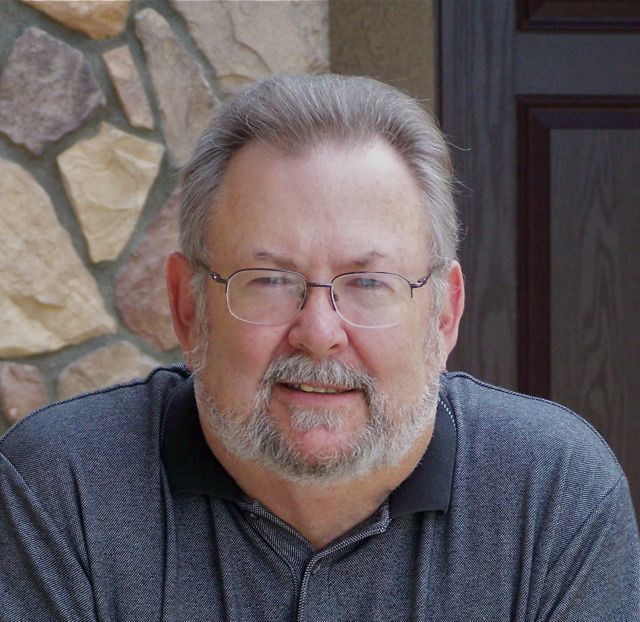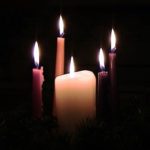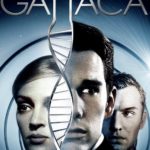Ministered To By The Secular Market
Years ago, I was being interviewed on some Christian radio program or another when a question caught me off guard: “Who are your favorite novelists?” I rattled off a few from the sci-fi universe (Arthur C. Clark, Ben Bova, etc), a few from the action-adventure neighborhood (Clive Cussler, etc); some from the tech corner of the world (Michael Crichton and others), and — oh, yeah — one from the Christian market (Jack Cavanaugh). That’s when it hit me: I read more general market stuff than Christian.
 Oddly, all of my 40 or so books have been published in the Christian market. Why didn’t I have a longer list of Christian authors? Don’t get me wrong. I’ve had read a bunch of Christian titles and still do, but when asked my favorites, I defaulted to the secular end of the spectrum. This demanded some inner noodling.
Oddly, all of my 40 or so books have been published in the Christian market. Why didn’t I have a longer list of Christian authors? Don’t get me wrong. I’ve had read a bunch of Christian titles and still do, but when asked my favorites, I defaulted to the secular end of the spectrum. This demanded some inner noodling.
So noodle I did.
I thought about many things. I grew up reading general market stuff. As a child, I read what was in the library. As a young adult I feasted on sci-fi. As I grew older, I added action-adventure and tech stuff like what Michael Crichton used to write. So, general market fiction had been my diet for decades.
During that time, I read one or two Christian-themed novels. Christian novels were new and rare, at least in the genres I consumed. Both books were horrible. Badly written. Poorly edited. It left a nasty taste in my brain so I restricted myself to the tastier fare from the other side of the aisle.
It was sad, really. Why couldn’t there be good novels with Christian protagonists? Well, Christian fiction was still new and just learning to walk away from its crib. Since then, the quality and quantity of such novels has increased. Today, we can read fiction by Christian novelists that are on the same level or superior in craft to what is found in the general market. To be fair, there are many well-written secular novels. There are some real craftsman penning stellar work. And there are some stinkers too. Such is the world of books.
Secular novels were my mentors. When I first determined to take a few tries at writing fiction, I studied the best writers in my genre. Most were on the secular side of the fence. Hence my answer to the interviewers question.
The secular market blessed me with more than some good reading, but also with a pattern of writing from the best craftsman. Today, I can say the same is true on the faith-based side. Authors like Steven James, James Scott Bell, Jack Cavanaugh, and scores of others, have raised the bar and done so in short order. For that we can be thankful.
I’m also thankful for those who write on the secular side. They’ve forced me to think, to reassess, to challenge my reasoning. In the end, my faith has been enhanced by books that have nothing to do with Christianity.
This is the value of reading. Every reader brings something to the table of communication. Few are those who can read a novel and not filter it through their life experience. Books, fiction and nonfiction, are there to entertain, instruct, and yes, argue with, and by arguing, exercise our thinking.
I recall reading a series of mysteries about a rabbi. Nicely done, sensitive, and instructive. I learned a great deal about reformed Jewish thinking; I also learned how misunderstood the Christian message is. The rabbi — in some bit of dialogue — would say, “You Christians believe this, and this, and this . . .” To which I would respond, “No we don’t. I’ve got a couple earned degrees in this field and I’m pretty sure very few Christians believe what you describe.”
There’s a lesson there. It taught me that the Christian faith is often misunderstood and misrepresented. I needed to know that. It made me sensitive to the assumptions held by non-church folk. It also gave me a desire to show what Christians believe and how they behave, and what better way to do that than in my novels?
I still read secular work and enjoy it very much. I have much to learn and reading is a great way to learn it.









































Oh wow. I’m the same way–grew up reading secular stuff because there was just nothing available in the Christian bookstore (or CBD catalog). Trying to remedy that now, though! Lots of great Christian stuff coming along now.
Kind of like how Amy Grant and Petra blazed the trail for Burlap to Cashmere and the three bands DC Talk has become. 🙂
I just checked out 19-some books from the library. Only one is Christian—Ted Dekker’s Forbidden. The rest are primarily Neil Gaiman, with two Edward Eager (imitator of Edith Nesbit) and a few miscellaneous. Part of it is that I can check out Christian authors more easily elsewhere, but it’s also a matter of not knowing where to look for similar Christian authors–anything similar to Neil Gaiman’s Sandman by Christians? Don’t think so.
Whereas I was the exact opposite — surviving on Christian-approved and overall great storytelling influenced by speculative elements, such as Adventures in Odyssey. All hail the now-clearly-TARDIS-inspired Imagination Station! Now it’s even more fun finding the original sources for some of those ideas. Yet I remain fond of Peretti and yes, even the Left Behind series, which to me were the “trailblazers.” I wouldn’t be here now (on Spec-Faith, that is) if not for them. To me they were the ones who opened new worlds.
My theory is that Whit is a Time Lord. So are Eugene and Connie, which explains why they never age.
I know nothing about Dr. Who, but that’s funny Galadriel!
Now that makes sense!
Although, Eugene has aged a bit – he seems to be in his late 20s now, but he started as a student. Btw, did you know the actor who plays him is in his 60s – the wonders of radio!
Did you ever read Lee Roddy’s juvie fiction series, like the one about the mysteries set in Hawaii? I think I still own every single one of them. I adored Lee Roddy. But eventually our Christian bookstore stopped carrying him. I was amazed to find his entire book list on Wikipedia. It’s impressive. (He teaches writing workshops now.)
I grew up listening to Odyssey, too. But after Hal Smith died and the original writers and producers moved on to greener pastures, it just wasn’t the same. I pretty much stopped listening to it after the Doomsday series where Dr. Blackgaard takes over the whole town with Whit’s End as his goal. To me, that was the End.
The Novacom saga (early 2000s) was pretty good, and the recent Green Ring Conspiracy was okay. But they had to replace Whit a third time, and I really don’t like the new one. The current “focus family” –like the Barcleys used to be–is just annoying
I’d never heard of a Green Ring conspiracy.
Does this have anything to do with a certain intergalactic Lantern Corps, and Hal Jordan?
No. It’s about some counterfeiters.
I find this is true in the field of music as well. Such diversity, I love it. Excellent post! Thank you.
Good post.
My favorite authors are in the general market, too. I think it’s just that there are so many more over there–many of them Christians–so there’s more of a chance of connecting. Though I do love some authors in the Christian market, they are fewer and farther between.
I had an experience today that might fall under this. I was scrolling through Tumblr when someone posted the following quote:
When I was your age, I used to think “Oh, when I’m grown up, I’ll know what I want, I’ll be sorted.” But you never really know what you want. You never feel grown up, not really. You never sort it all out –Sarah Jane Adventures
When I read that, I just had this deep sense of satisfaction and peace, like… “I needed to hear that.” It ministered to me in a way that a Scripture verse might at another time.
I read both equally, but even early on I enjoyed Christian spec fiction. It’s just rarer, and the general market is heavily slanted towards certain types of readers so there’s less to branch out from. I’m not keen on historical fiction, and the thrillers and mysteries often seemed to be targeted more towards women than men. But many Christian books number with secular ones for my favorites.
But when it’s bad, man it’s bad. I grew up with Gospel Bill and Fire by Nite. I think we would have killed for something like Adventures in Odyssey.
Ah, I remember “Gospel Bill,” though it was in reruns by the time I saw it. I don’t think they meant it to be much more than silly fun with End-Moments Morals.
The worst parts were when the “prosperity gospel” crept in. I recall when Gospel Bill and Elmer Barnes were trapped in a building about to explode, and Gospel Bill insisted that though he didn’t know how, they were going to get out of this, claiming the promise of “there shall no evil befall you.”
Still, at least that’s somewhat closer to Biblical truth — closer than the same crew’s kids’ game show some years later. That show once featured a skit in which a Christian auto mechanic, demonstrating dominion over creation, ordered a computer-generated buzzing wasp out of his auto-repair shop with the words, “In the name of Jesus, I command you to depart this place.” I am not making this kids’-show skit up.
I read mostly non-christian fiction; always have. Partly, I guess, because there is not much British christian fiction, so reading only Christian fiction was never an option. You got one Christian book per year as a Sunday School prize (probably by Patricia St John, who was an excellent Christian author), and that was more or less it. The American ones hadn’t come over here yet, though I doubt they’d have appealed to me – it’s a very different culture.